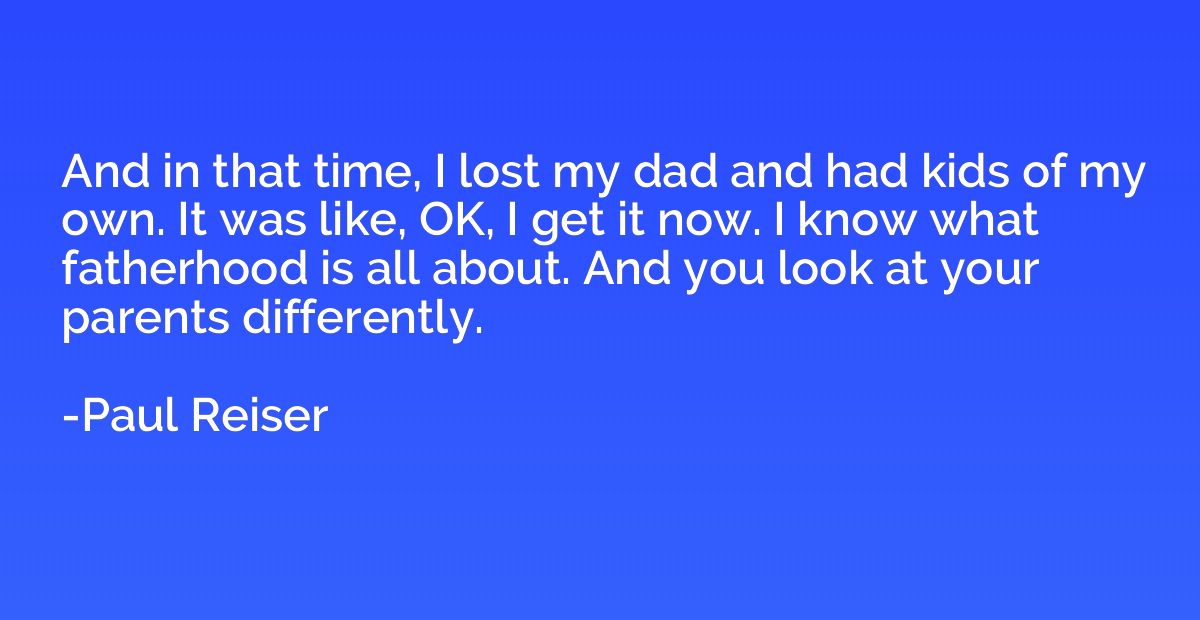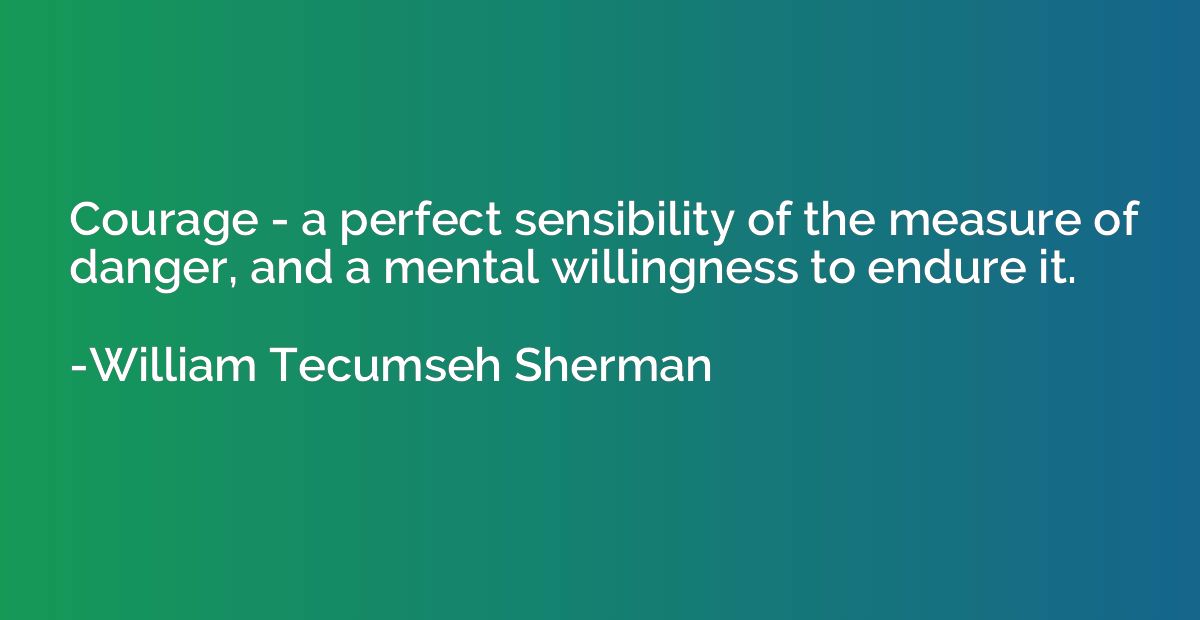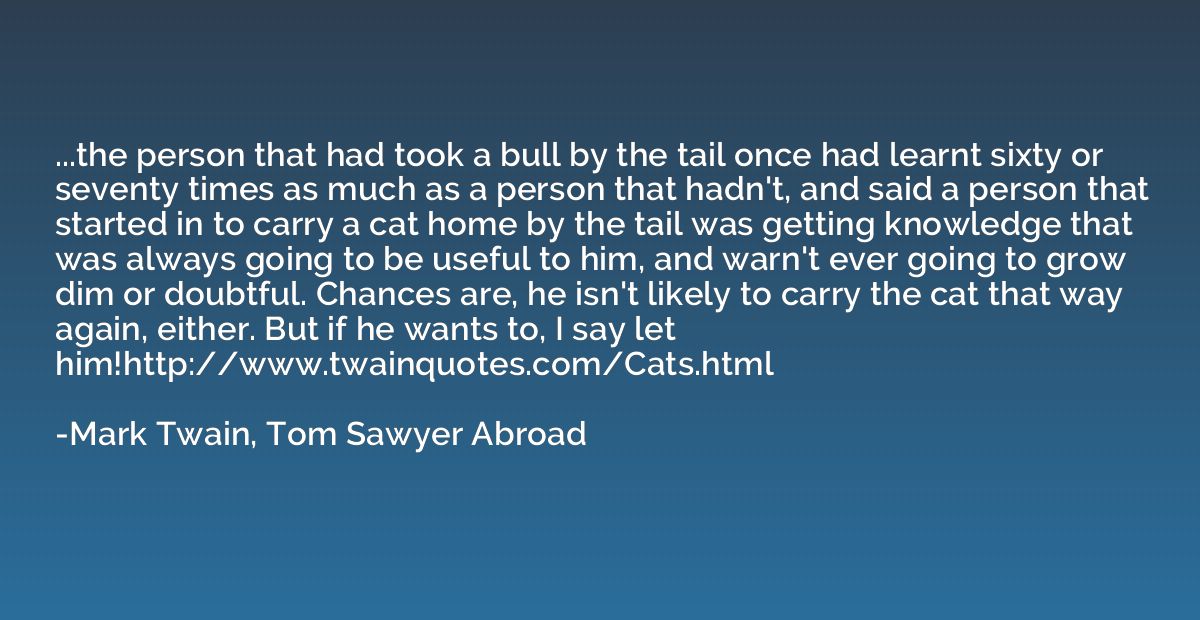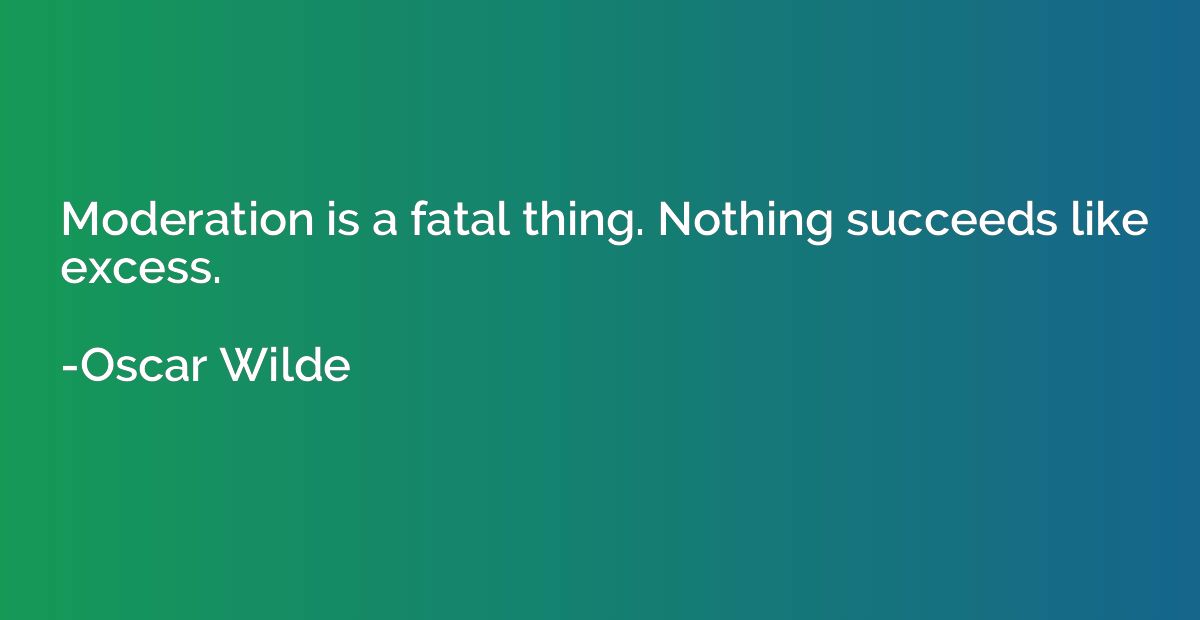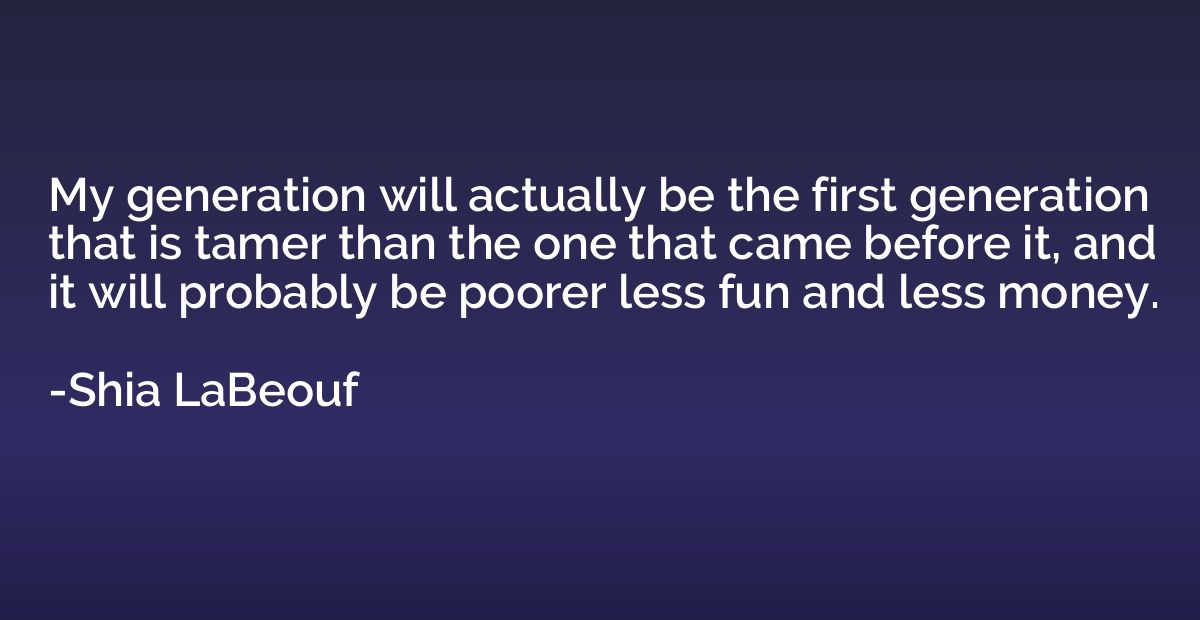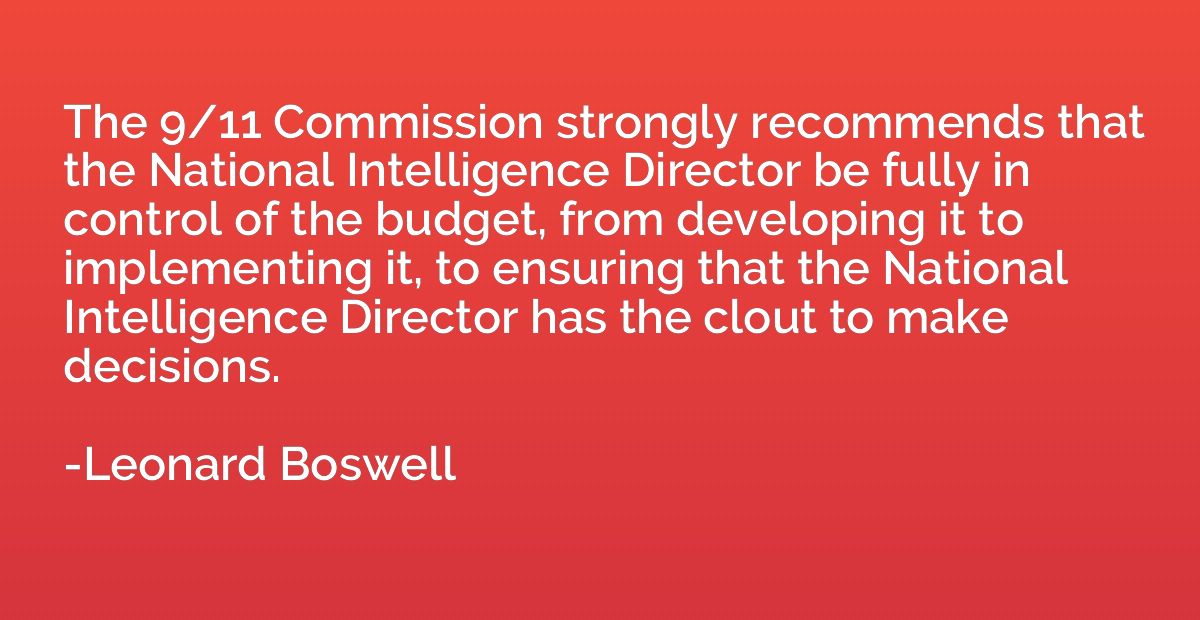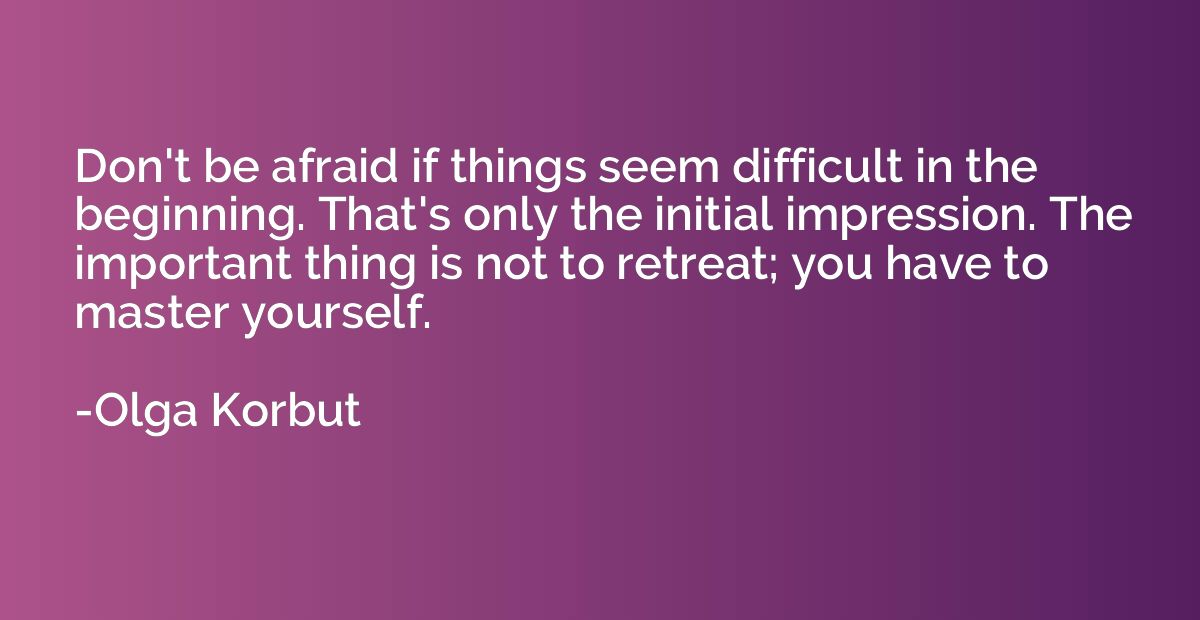Quote by Brian Moore
There comes a point in many people's lives when they can no longer play the role they have chosen for themselves. When that happens, we are like actors finding that someone has changed the play.
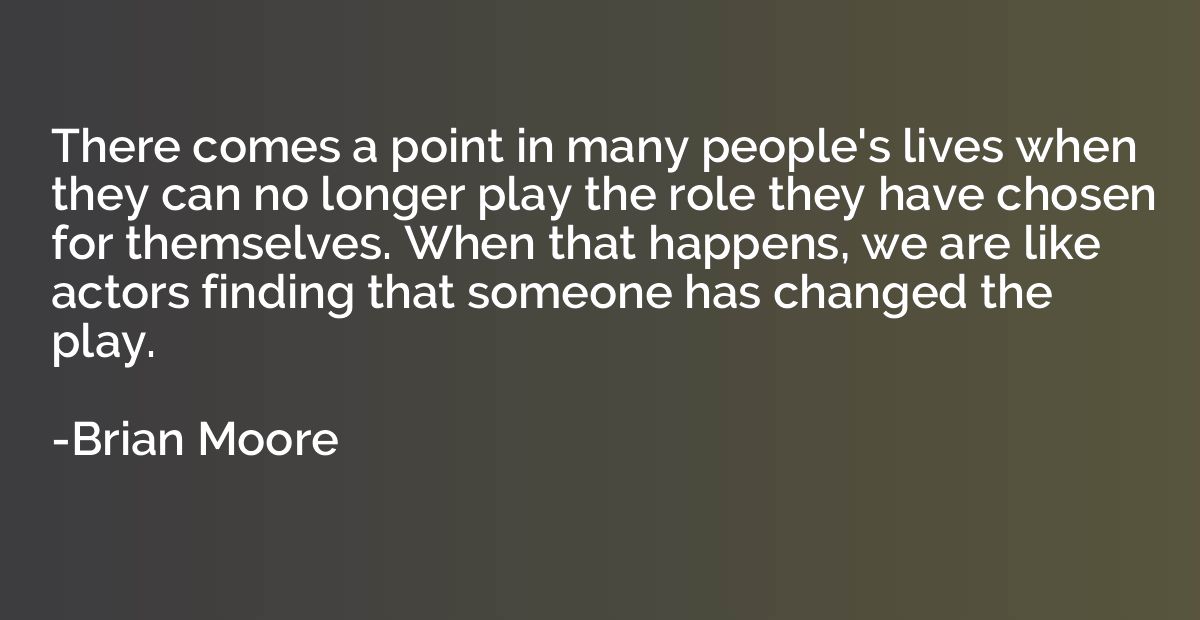
Summary
This quote suggests that at a certain stage in our lives, we may reach a point where the life we have created or the persona we have adopted no longer feels authentic or fitting. It compares this experience to actors who suddenly discover that the script they are following has been altered without their knowledge. This moment of realization prompts us to question our identity, purpose, and the choices we have made, forcing us to reevaluate our roles and make necessary changes in order to align with our true selves.
Topics
Identity
By Brian Moore





